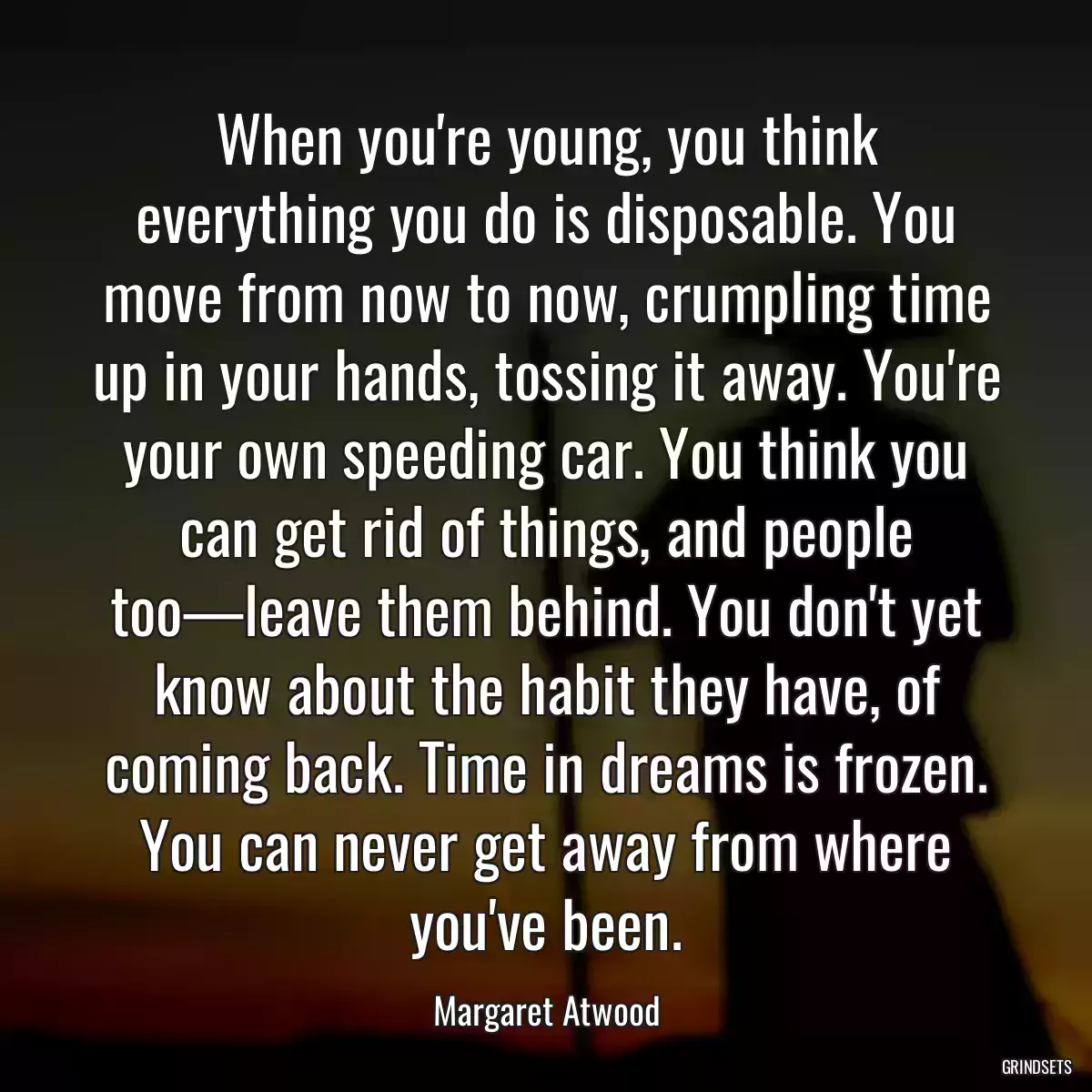
When you're young, you think everything you do is disposable. You move from now to now, crumpling time up in your hands, tossing it away. You're your own speeding car. You think you can get rid of things, and people too—leave them behind. You don't yet know about the habit they have, of coming back. Time in dreams is frozen. You can never get away from where you've been.
